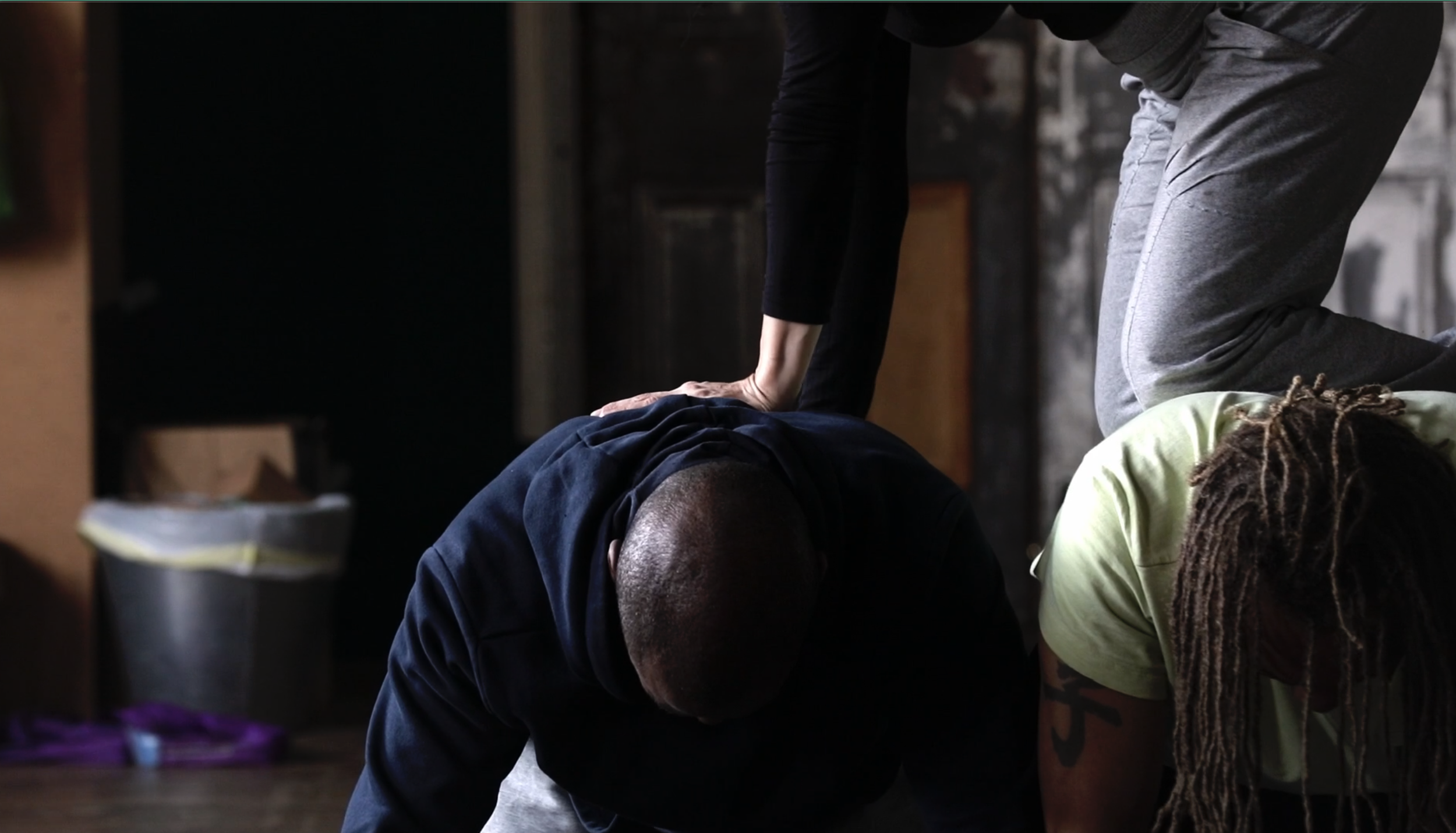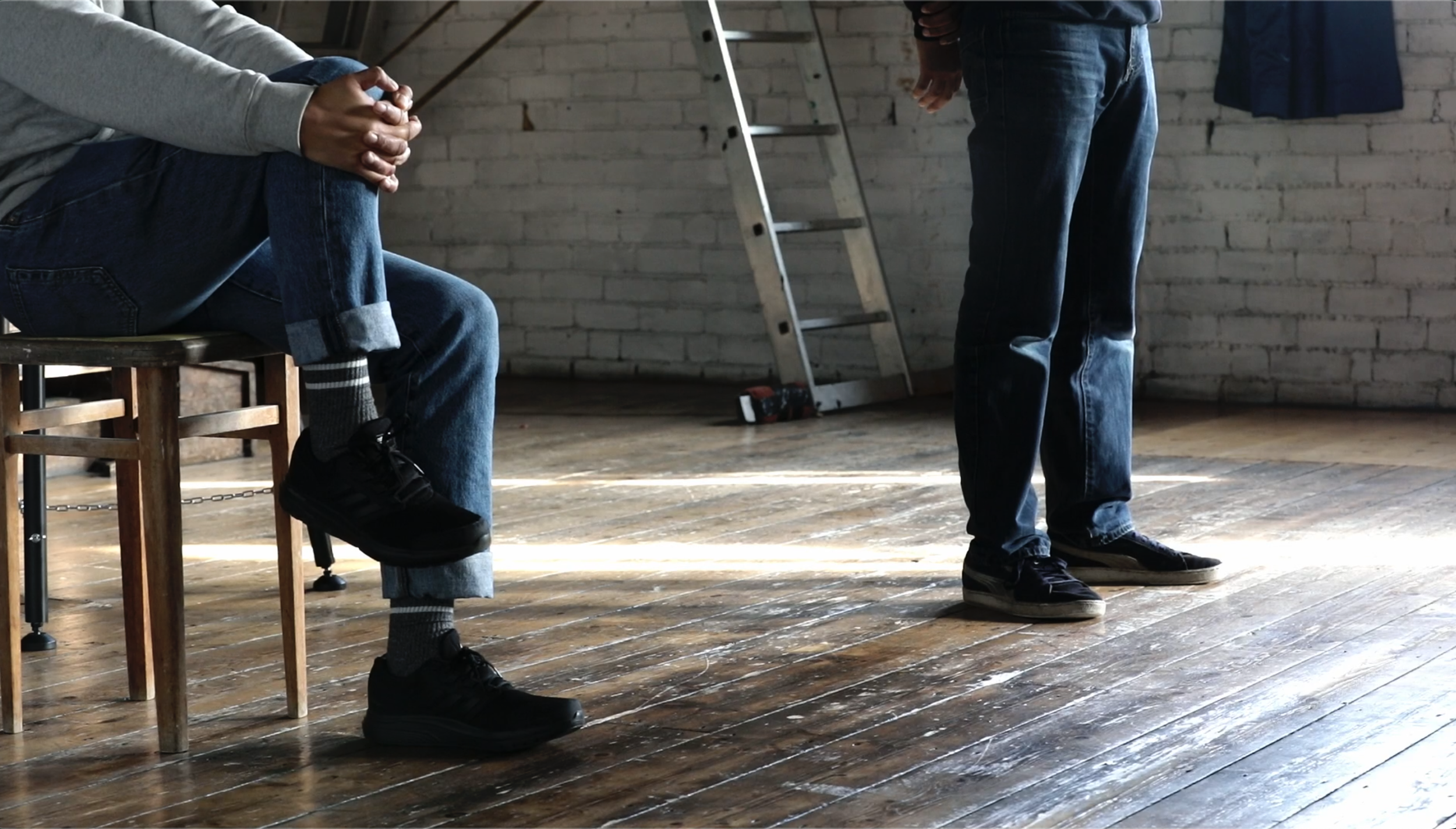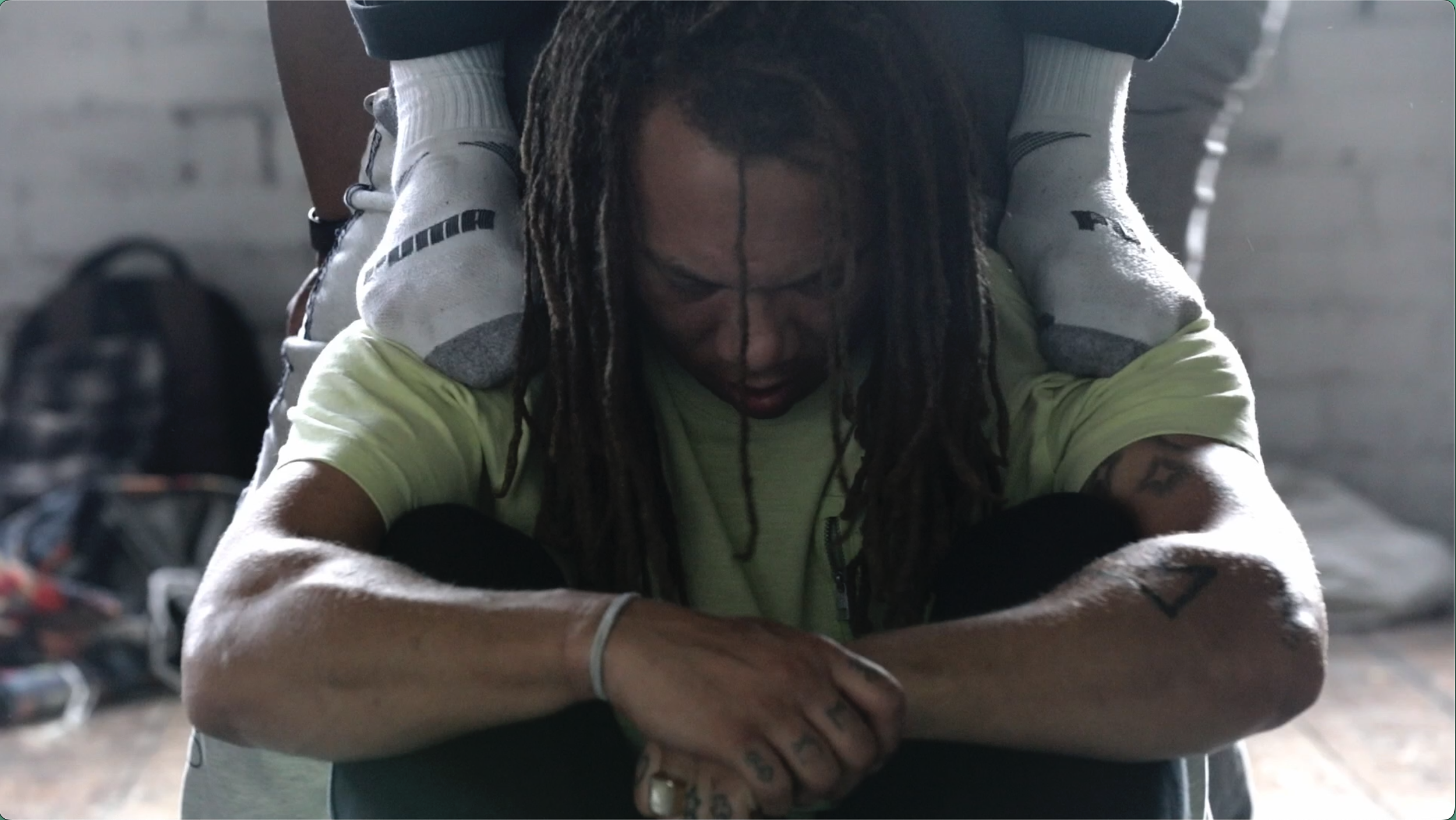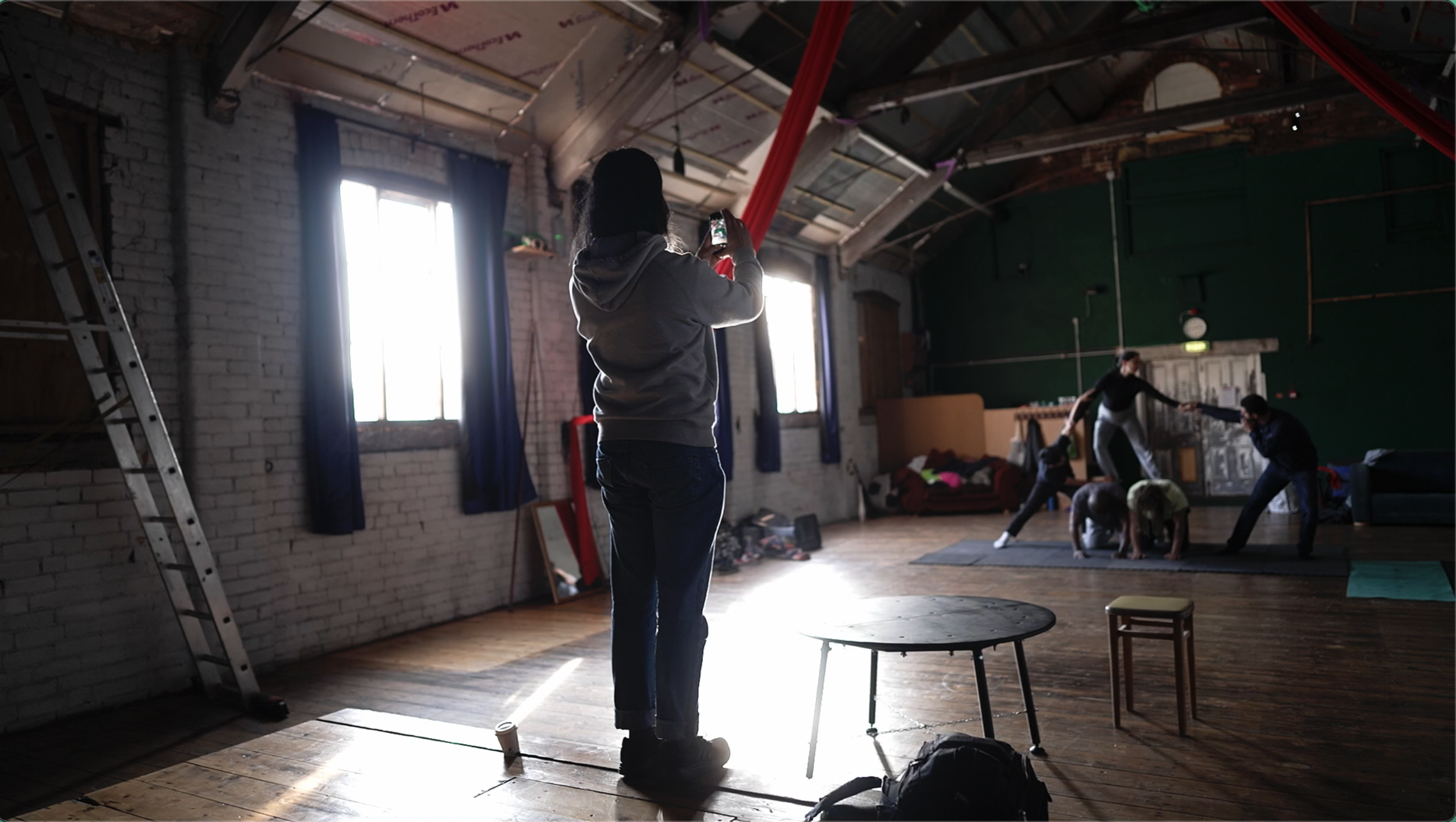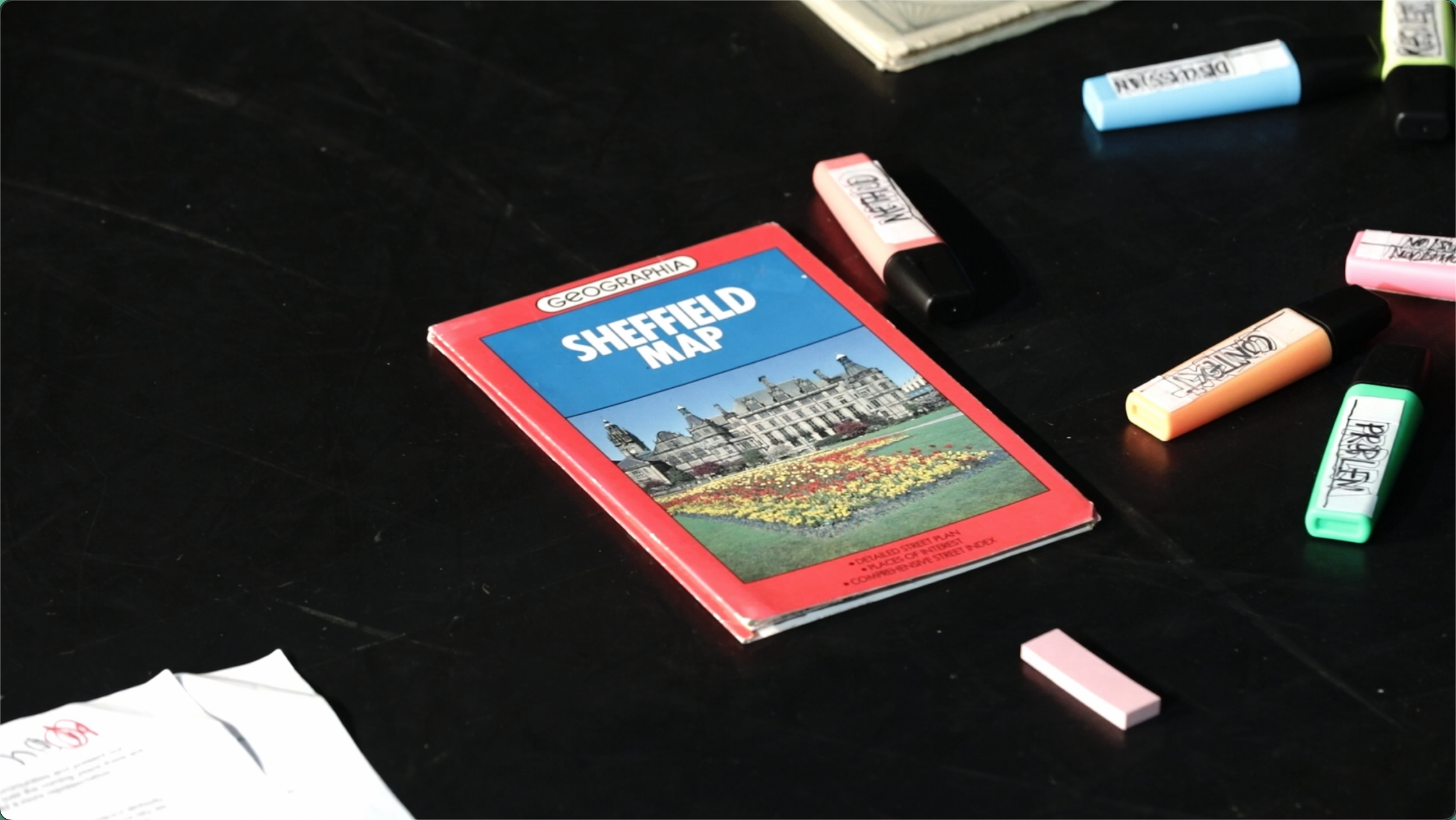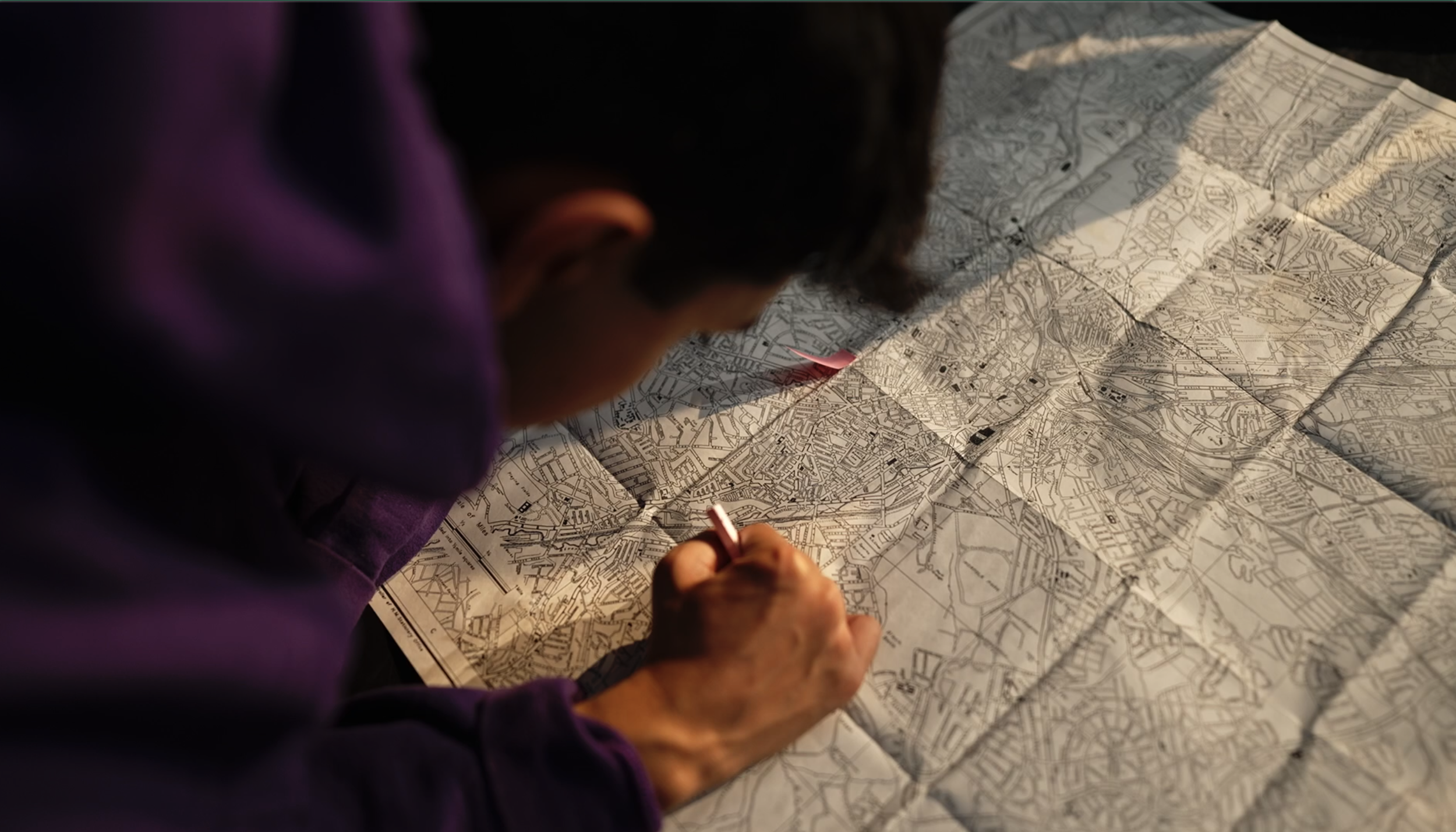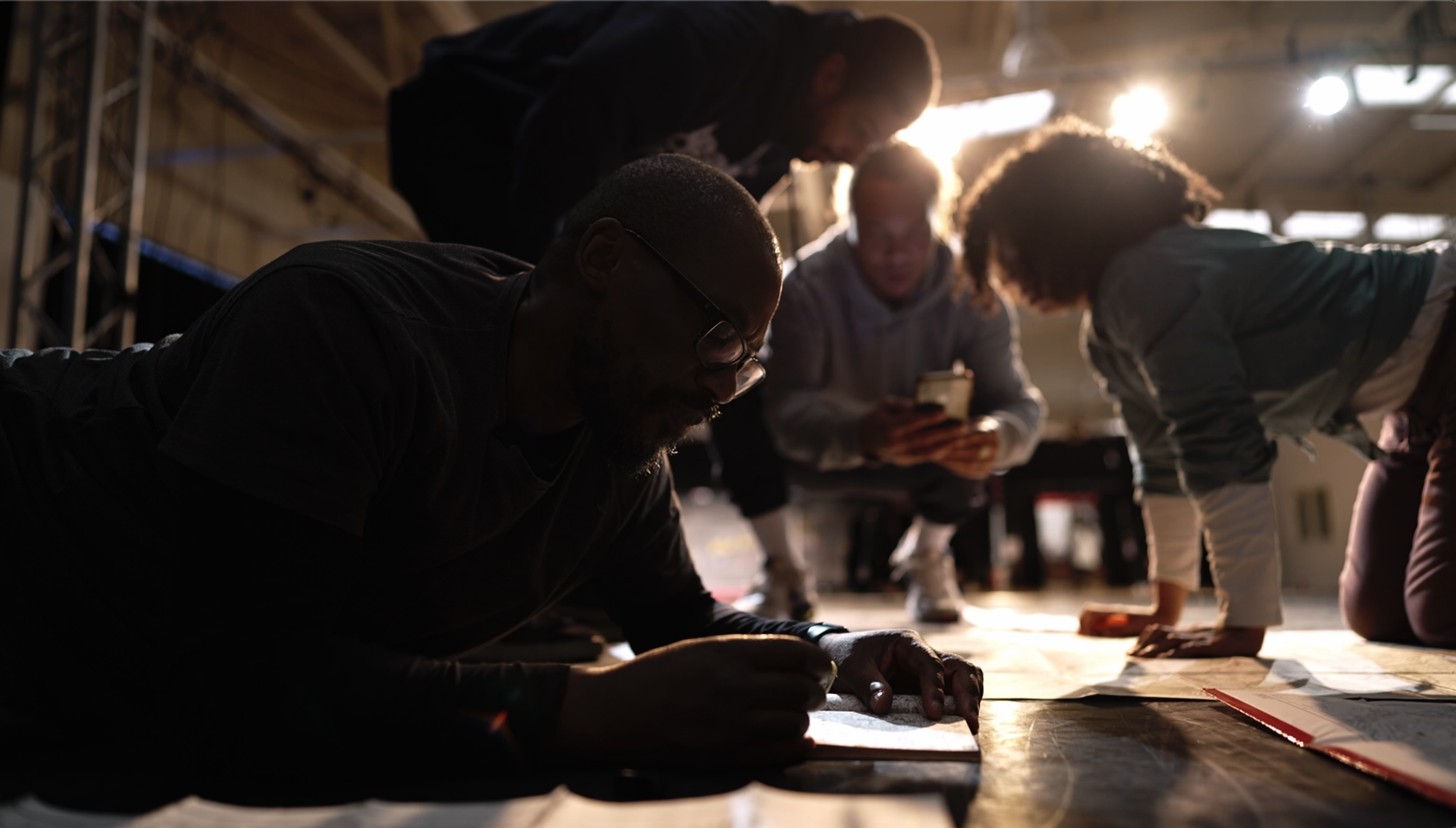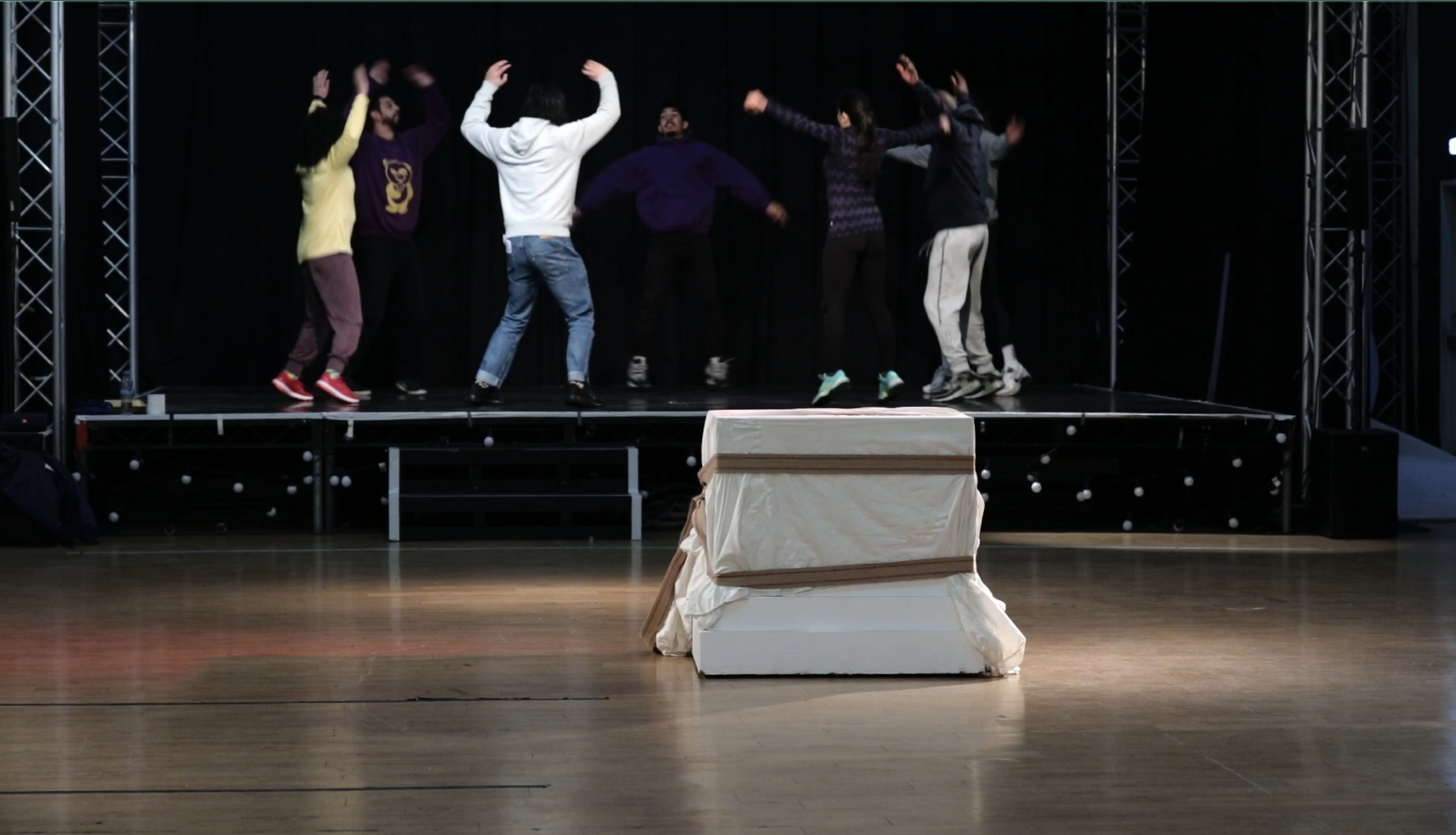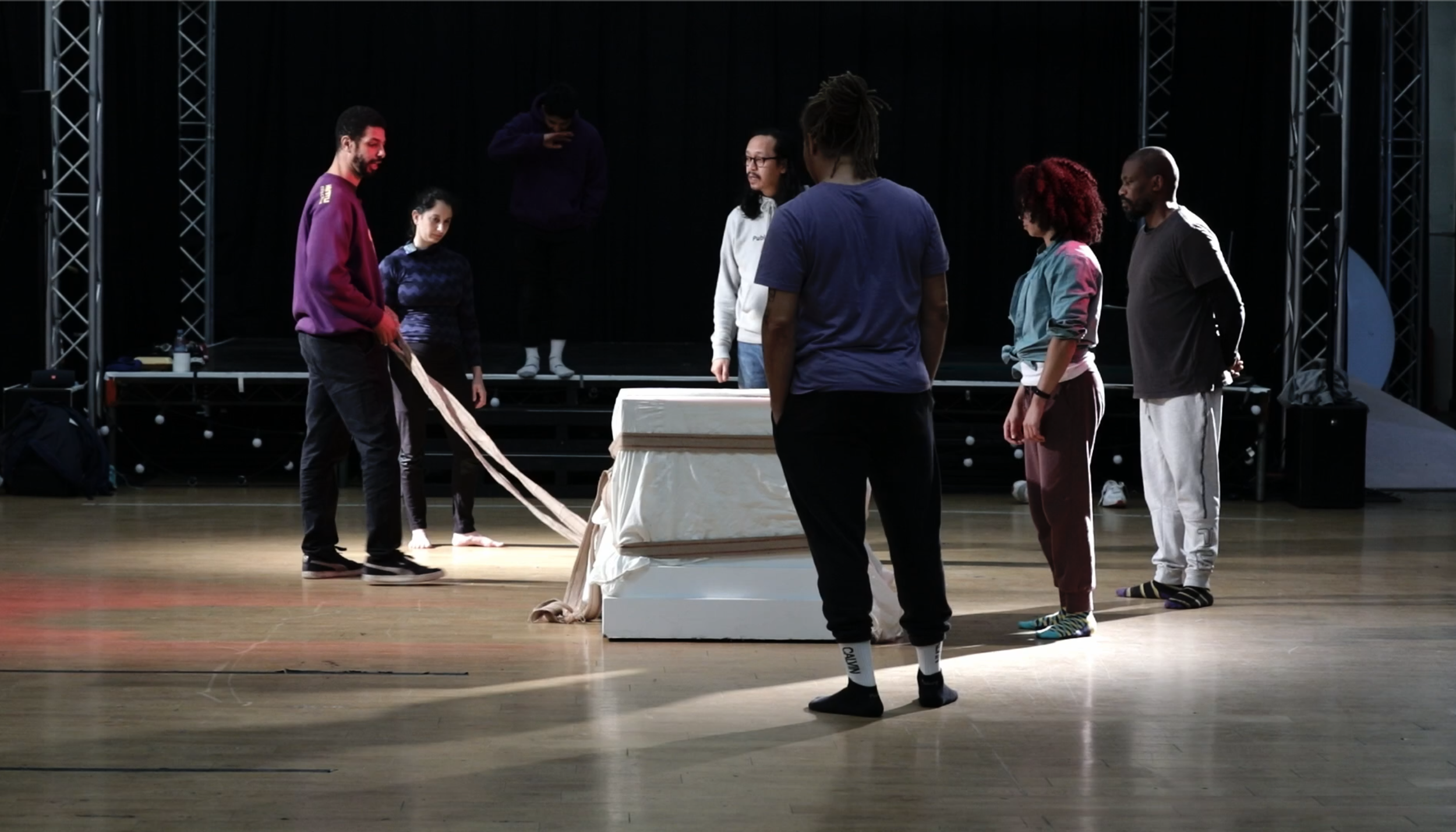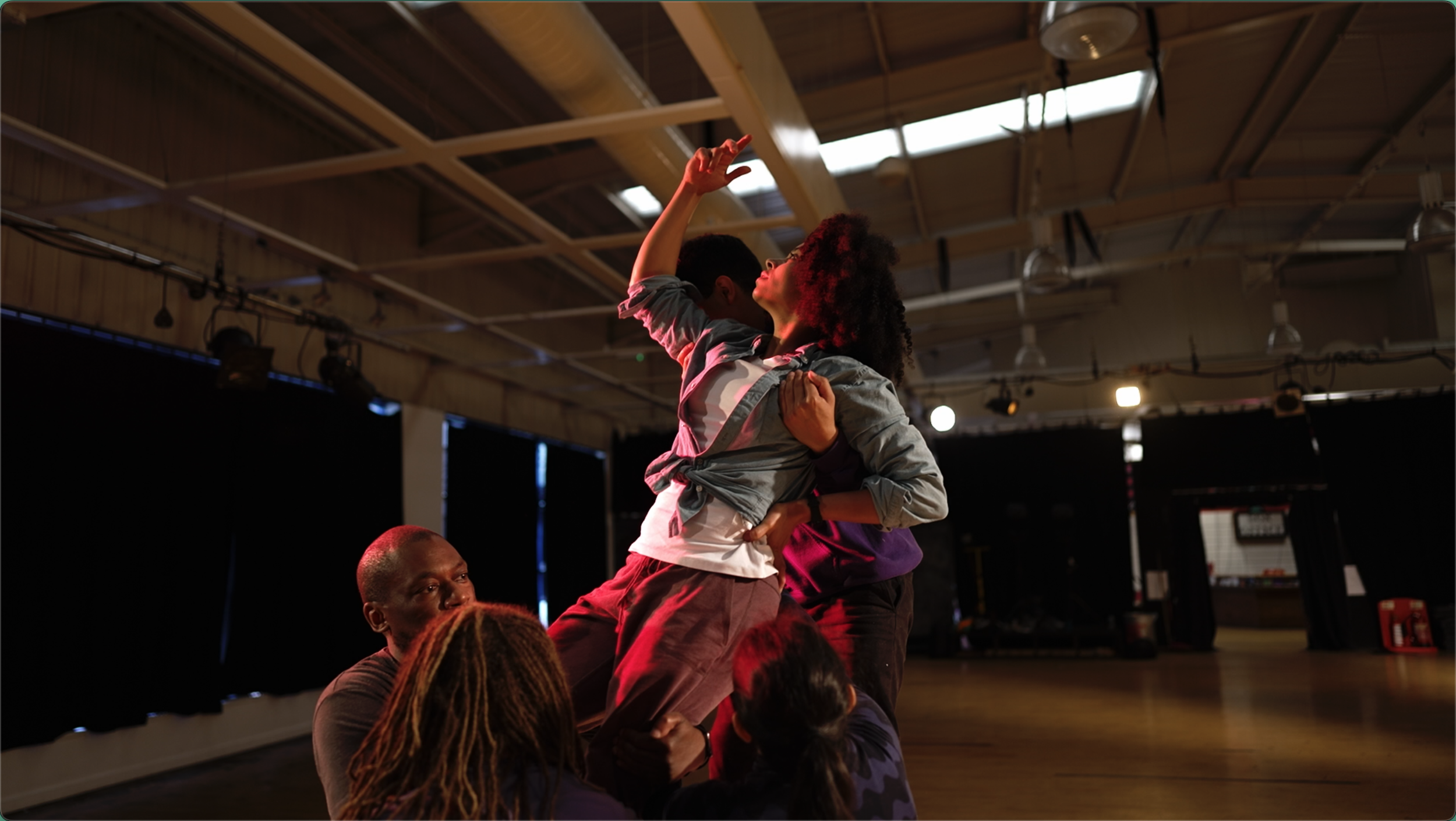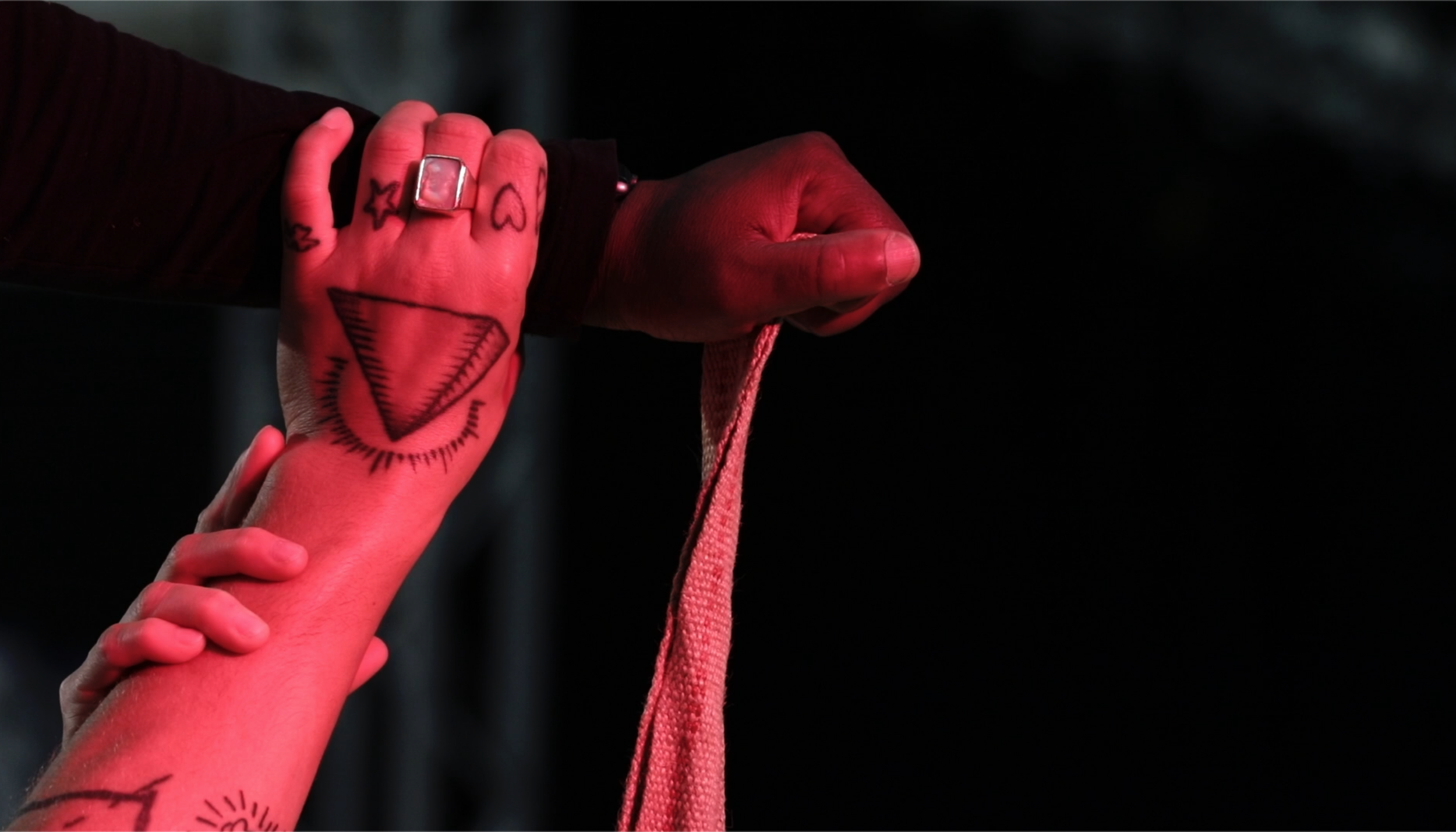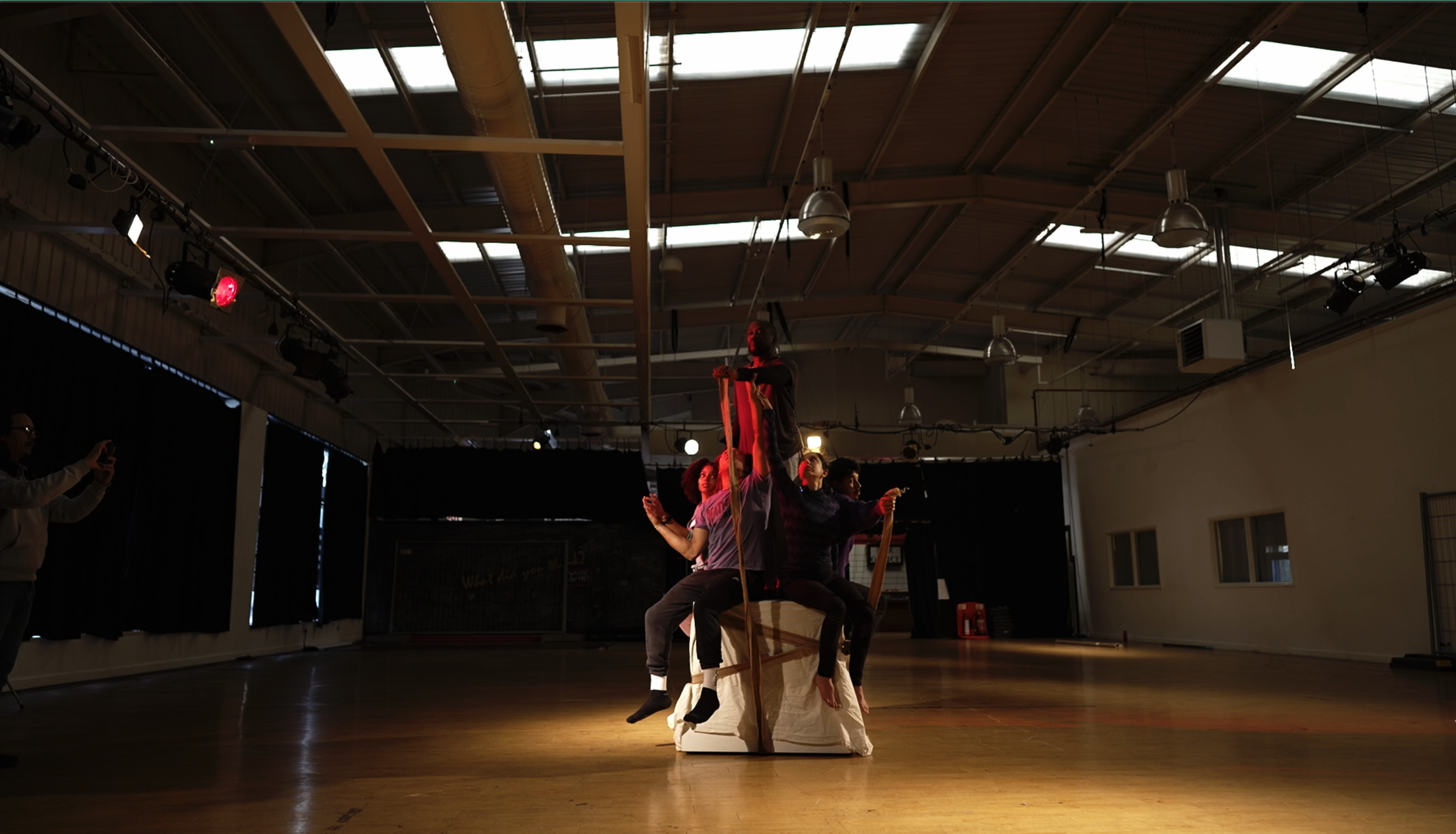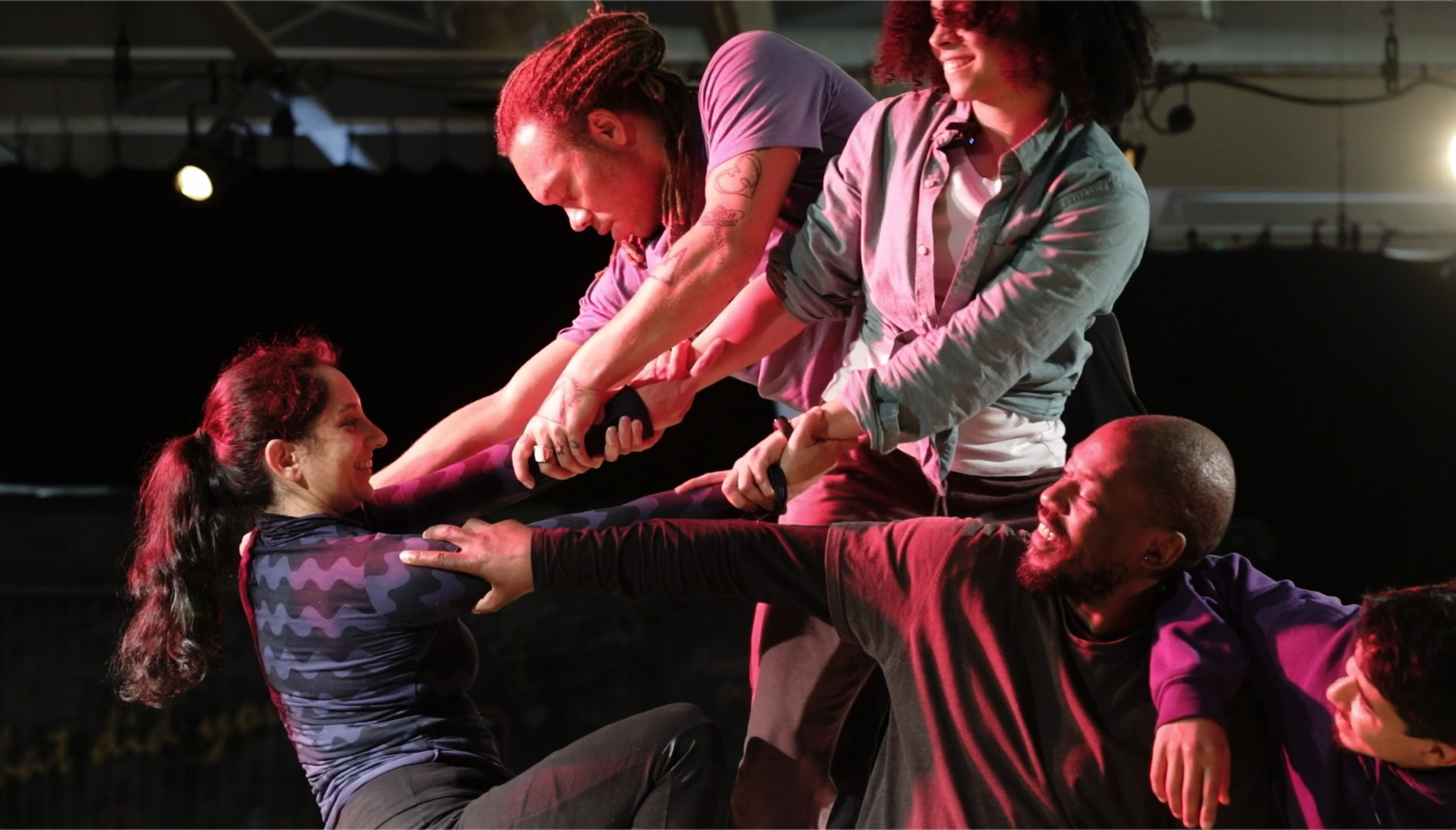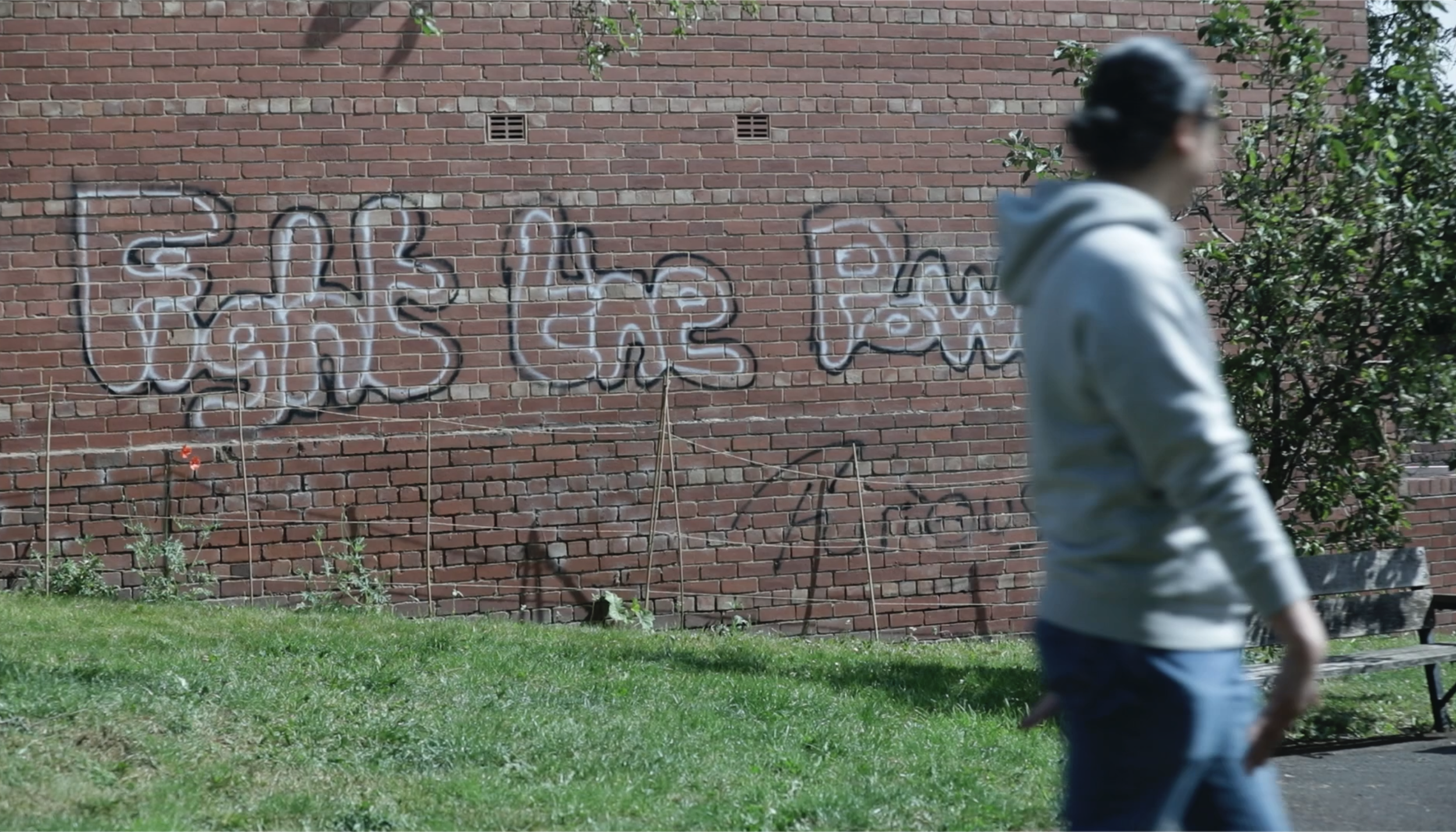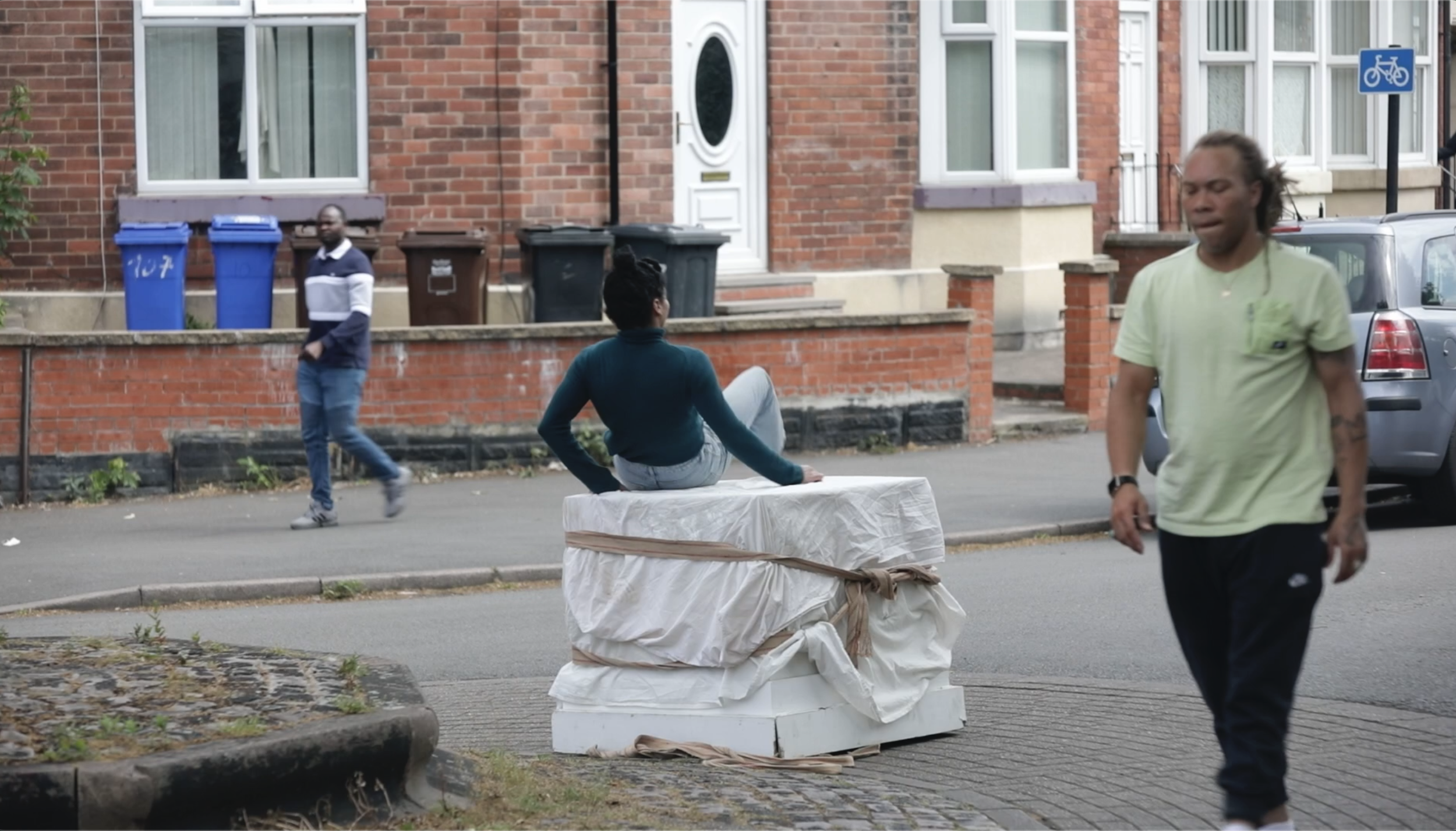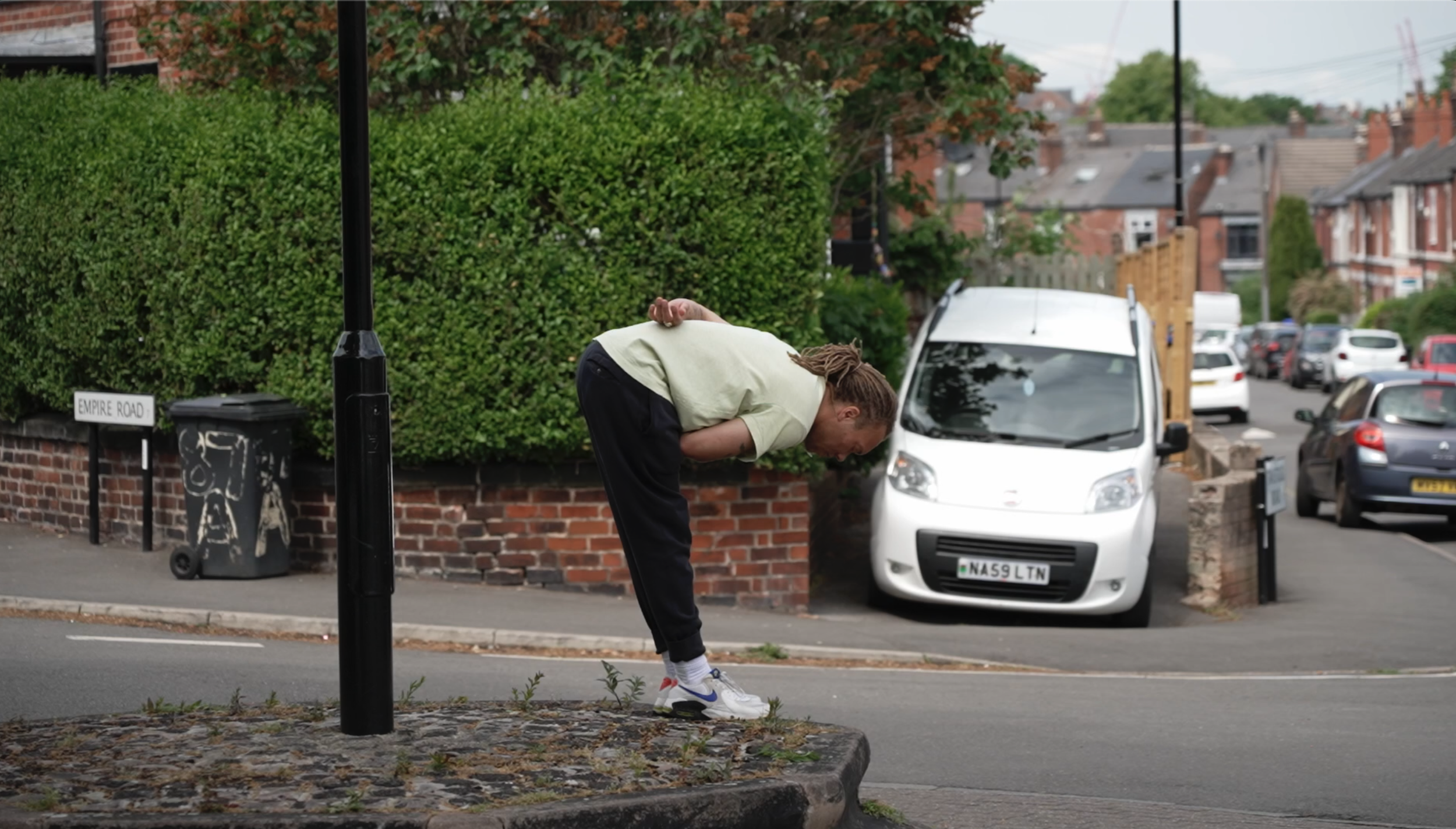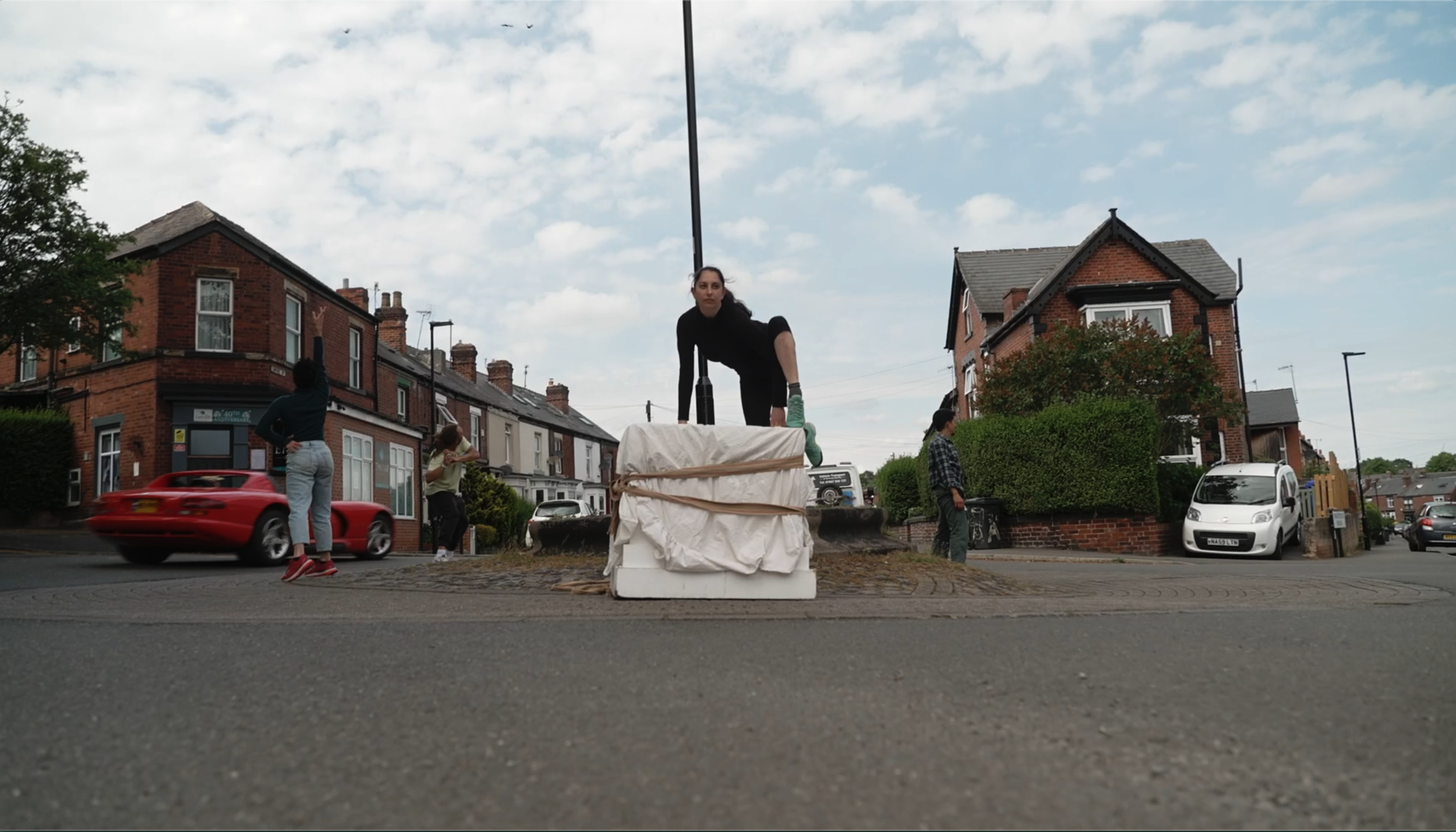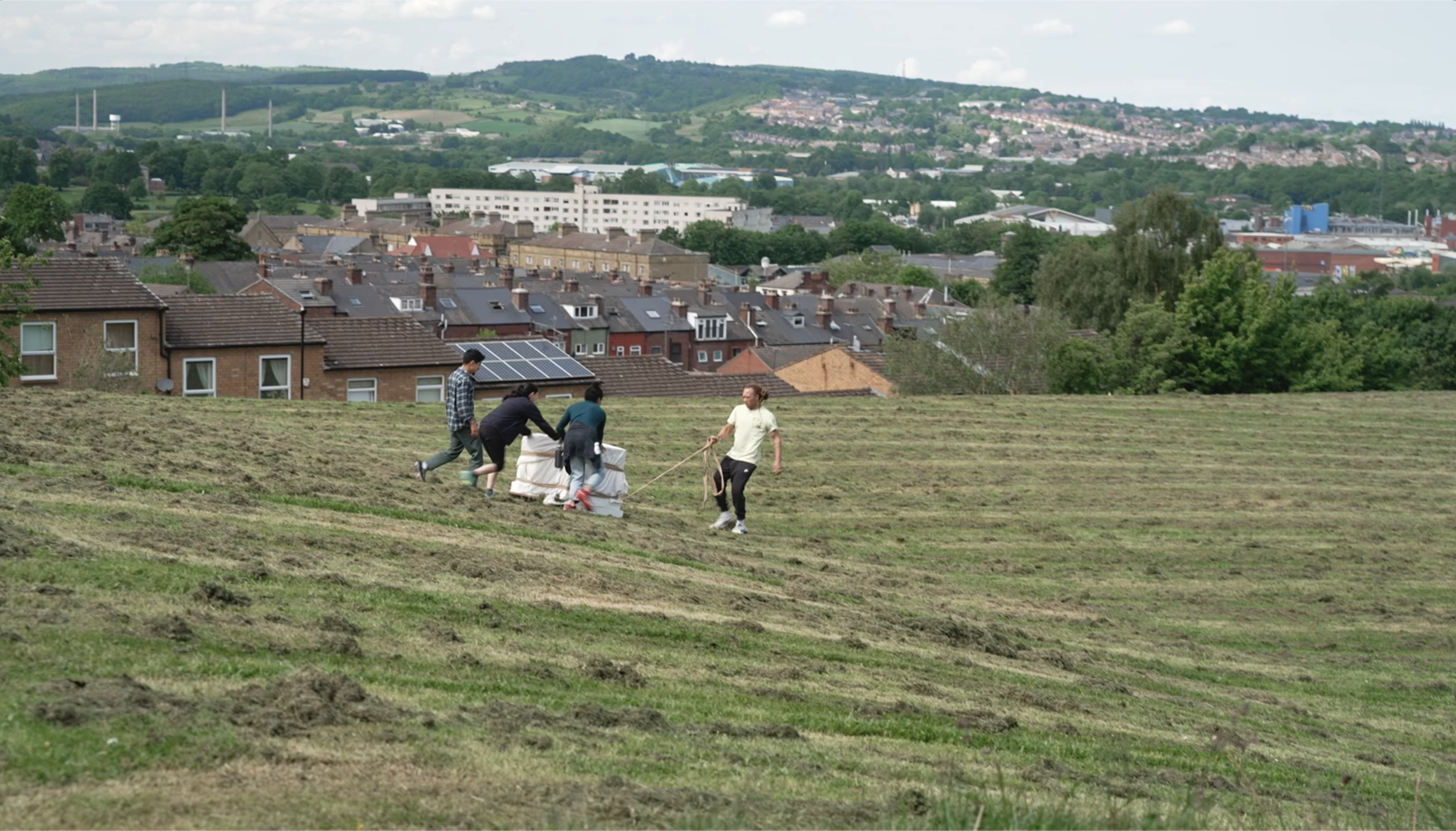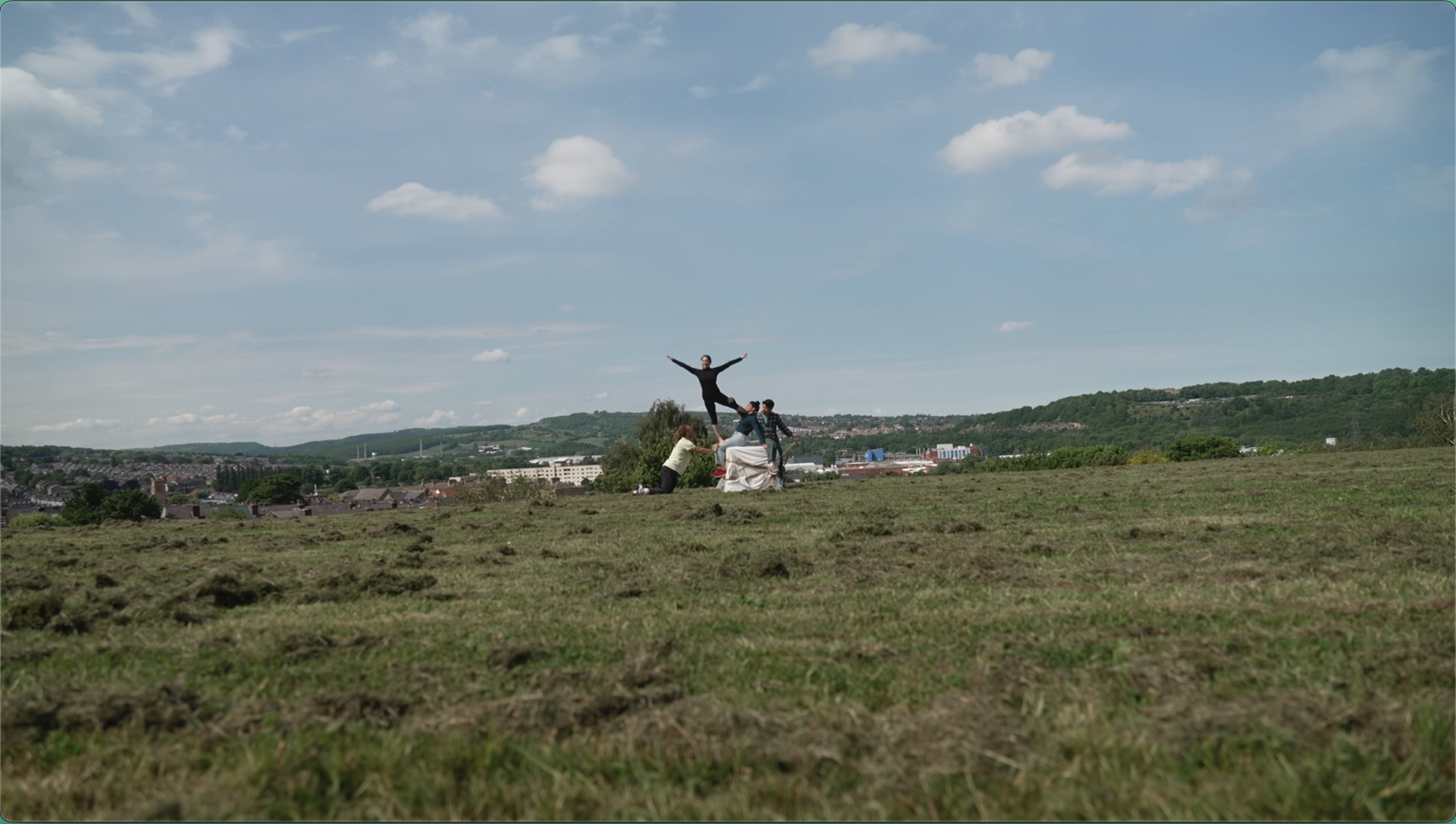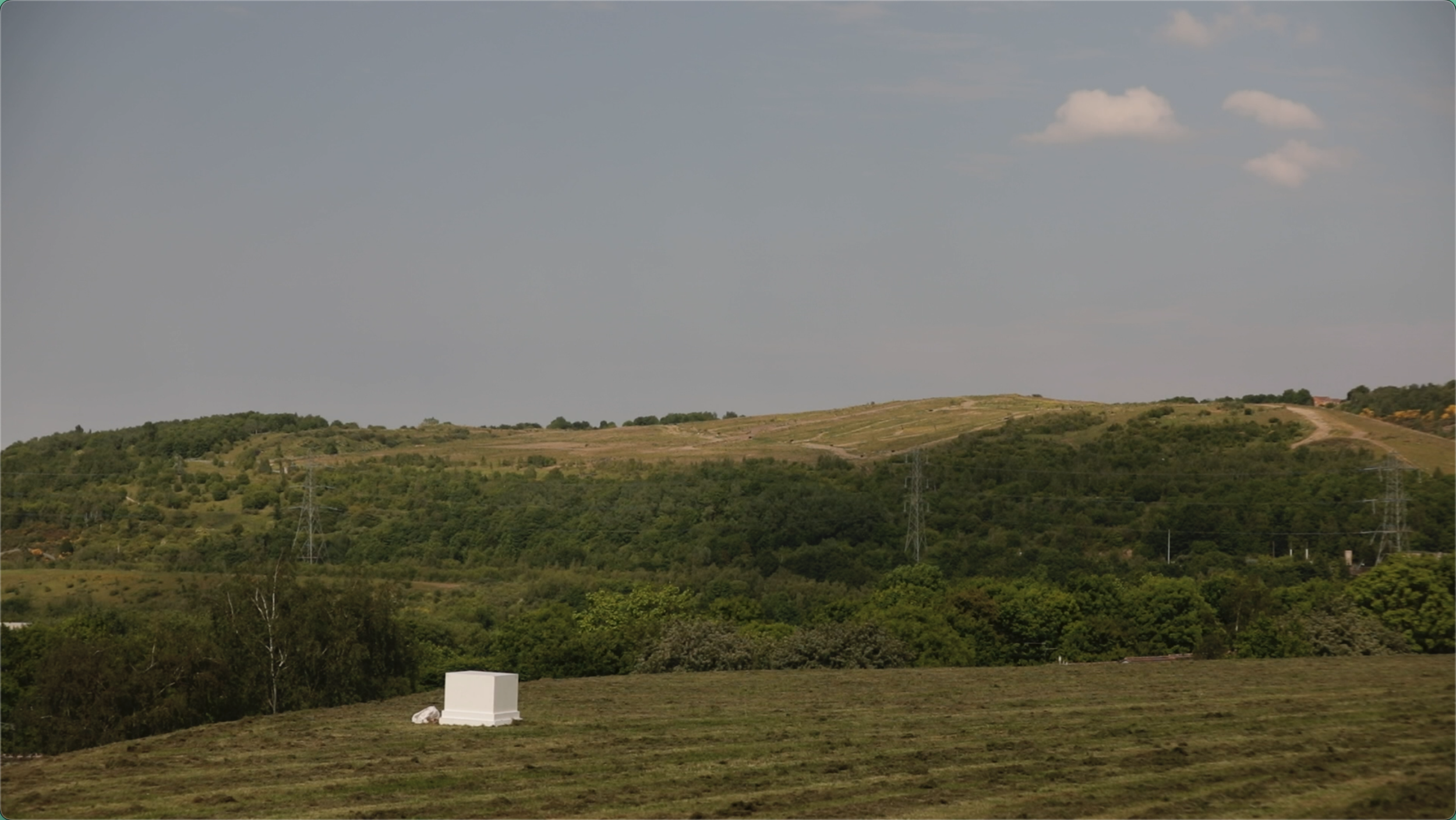HUMAN MEMORIAL
“The Empty Plinth” (2022)
“The Empty Plinth” (2022) is a 3-channel film documenting a series of workshops, rehearsals and public performances exploring the decolonisation of public space in Sheffield. Workshop leaders: Yuen Fong Ling, Nathan Geering; participants: Samara Casewell, Marcus Smith, Rebecca Solomon, Darwin Taylor, and Sam Underwood Doherty. Film production by LUMO FILM.
Supported by AHRC funded SAFEDI (Social Art for Equality Diversity and Inclusion) Research Project, led by MMU, AXIS and SAN (Social Art Network), in partnership with Sheffield City Council, Sheffield Museums and Heritage Trust, Sheffield City Archives and Local Studies Library, and Sheffield Hallam University.
N.B. Each of the three films are to be viewed simultaneously across three separate video monitors and headphones, allowing the viewer greater interactivity to see the films partially, as a whole, and individually.
The film charts the development of a group of performers as they question the impact of decolonisation and public space, as a result of the Black Live Matter movement and Rhodes Must Fall campaign to remove monuments to Britain’s colonial history. From rehearsal and theatre spaces to public spaces, the performers build and create structures with their own and each other’s bodies, while discussing the dismantling and breaking down of institutional ideologies and conventions. The public performances took place in Summer 2021 and Spring 2022, taking an empty plinth to streets named in commemoration to Britain’s colonial and de-colonial history. Importantly, the film also considers the impact on artists of colour, with lived experience of racism, how we deal with the past, what needs to change, and what we celebrate in the future?
“The Empty Plinth” (2022) is the result of an ongoing research inquiry “The Human Memorial” by the lead artist curator and researcher Yuen Fong Ling, considering alternative forms of public memorial and monument making. The research considers the role of social art practice as the solution to contentious public statuary, exploring methods of co-authorship and collaboration. The research aims to develop inclusive procedures in the commissioning of public art, developing authentic community participation, and a culture of change at strategic planning and policy level. The research has been informed by Ling advising Sheffield City Council’s heritage working group tasked to decolonise street names, statues and monuments in the city, and as commissioner for Sheffield’s Race Equality Commission highlighting racial inequality within the city’s institutions and organisations.

